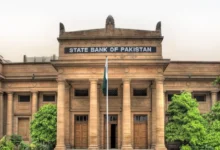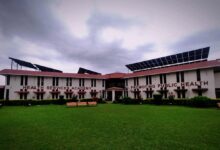Minorities Demand Equal Representation in Pakistan

In Pakistan, the time has come to allocate seats for minorities based on population and to give minority citizens the right to directly elect their representatives through their votes, says Shamoo Lal, a social and political worker from the ethnic Hindu community in South Punjab.
According to him, the Hindu Council Pakistan has been advocating for the past ten years to allocate seats for minorities based on population and to grant double voting rights to the minority community, similar to the system in Azad Jammu and Kashmir. Double voting rights would allow minority citizens to vote for a candidate in general seats (usually those nominated by political parties) as well as one on reserved seats.
Shamoo Lal highlights that more than 6% of Pakistan’s population comprises minorities, yet the reserved seats for minorities have not increased in proportion to the population growth. In contrast, the government has increased general seats due to population growth. “This is a double standard,” says Shamoo Lal.
According to Article 33 of the Constitution of Pakistan, parliamentary parties can elect minority representatives based on personal preferences, which, according to Shamoo Lal, has led to disappointment among minority candidates. He accuses political parties of failing to adhere to merit when choosing representatives for minority communities.
After gaining independence in 1947, Pakistan was initially envisioned as a secular state where minority rights were safeguarded. However, over the years, religious and ethnic minorities, including Hindus, Christians, Sikhs, and the Ahmadiyya community, have faced increasing marginalization. Today, these communities collectively make up nearly 10% of Pakistan’s population, yet they lack proportional representation in political offices.
The political structure of Pakistan disadvantages minorities, as it is nearly impossible for minority candidates to win general constituencies where the majority of voters are Muslim, and they typically do not vote for minority candidates.
While the separate electorate system allowed minorities to elect their own representatives, it has also isolated their political influence, ensuring that elected minority representatives have minimal impact on broader policy decisions.
Socioeconomic barriers further exacerbate the disenfranchisement of minority communities. Many minorities face systemic poverty, limited educational opportunities, and reduced access to essential services, which limits their political participation. Discrimination in employment and public services also forces minority groups into insular communities, diluting their national influence.
Religious intolerance and occasional violence against minority communities stifle their political involvement. Incidents such as attacks on places of worship and communal riots create a climate of fear and insecurity. As a result, minority voters and candidates may be dissuaded from participating in elections due to concerns over potential retaliation.
The Election Commission of Pakistan demarcated constituencies in August 2022. However, following the release of the first digital census by the Pakistan Statistical Institute, the Election Commission had to redefine the constituencies according to the law. Consequently, the total number of National Assembly seats was reduced to 336, including reserved seats and minority seats.
According to Articles 51 and 106 of the Constitution, 10 seats are reserved for non-Muslims in the National Assembly, while minorities are represented on 4 seats in the Khyber Pakhtunkhwa Provincial Assembly, 8 seats in the Punjab Assembly, 9 seats in the Sindh Assembly, and 3 seats in the Balochistan Assembly.
Before 1997, minorities participated in the direct election process, with separate electorates for Muslims and non-Muslims. However, under the government of General Musharraf in 2000, a joint electoral system was introduced, which eliminated the separate vote for minorities. Instead, parliamentary parties now elect minority representatives based on their success ratio, a practice still in place today.
Shamoo Lal, after years of political and social activism, says he still has not been selected for any reserved seat by any political party. He argues that without real representatives in the assemblies, the Christian and Hindu communities in South Punjab suffer from a lack of infrastructure and development funds. The Hindu community, for example, struggles to perform last rites due to a lack of space, while Sikhs must travel long distances for religious rituals.
Abid Pall, a representative of the National Commission of Justice & Peace, emphasized that civil society organizations and international actors play a crucial role in advocating for minority rights. Pakistani NGOs have campaigned for electoral reforms and greater protections for minorities. However, sustained efforts are required to bring about tangible change.
Faisal Mehmood, Regional Coordinator of the Human Rights Commission of Pakistan, called for comprehensive electoral reforms to ensure the political inclusion of minorities. These reforms should include a proportional representation system, enhanced legal protections, and economic and educational empowerment, alongside increased civic education and awareness.
According to data from the Election Commission of Pakistan, the number of minority voters in 2018 was over 3.63 million, up from 2.77 million in 2013. By August 2022, this number had increased to approximately 4.1 million. However, since 1985, the 10 reserved seats for minorities in the National Assembly have not been increased, despite the growth in minority population. In 2013, Dr. Ramesh Kumar, a minority member of the National Assembly, presented an amendment bill calling for direct elections for reserved seats and an increase in the number of minority seats. Despite being presented five times, the bill has yet to be passed.
Former Punjab Provincial Assembly member Mahendar Pal Singh stated that while the path to representative democracy in Pakistan is fraught with challenges, there is potential for positive change. The growing youth population, increased access to digital media, and international attention provide unique opportunities to amplify minority voices. Incremental progress in electoral reforms, combined with strong civil society advocacy and international support, could pave the way for a more inclusive political landscape in Pakistan.






